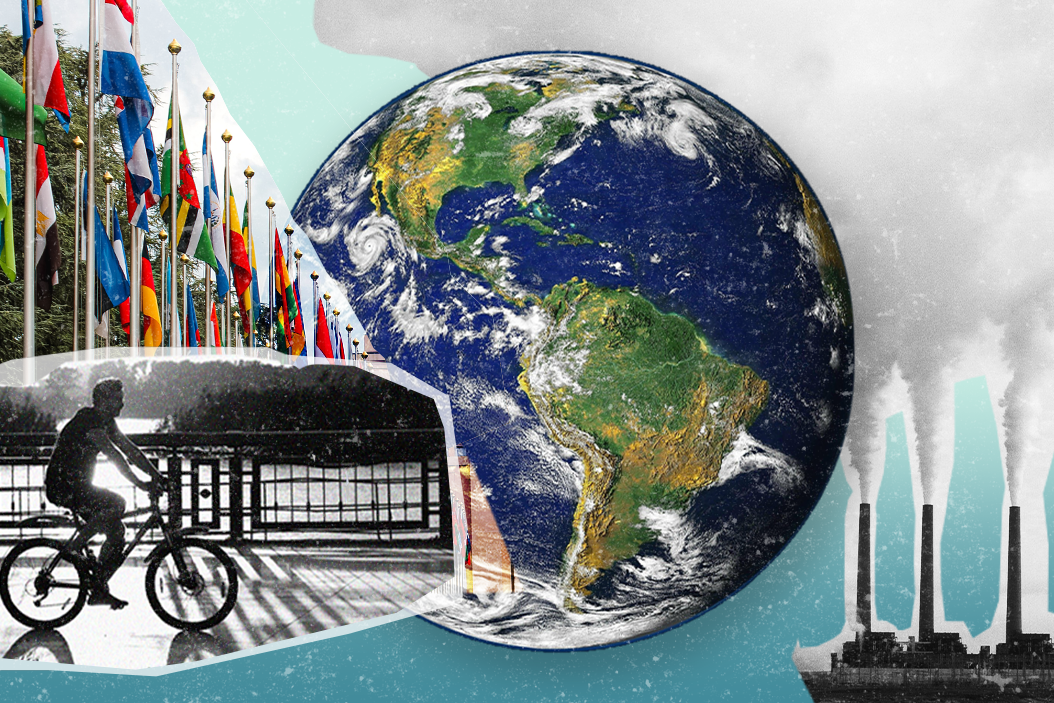While the US played a major role drafting the Paris Climate Accord, a 2015 global treaty aimed at mitigating the effects of climate change, it was also the only country out of nearly 200 signatories to pull out of the landmark pact.
Now President-elect Biden says he will rejoin the accord on day one of his administration in January. But while rejoining the treaty in practice is relatively straightforward, Biden will face plenty of political challenges at home — and abroad — once the US is back in the mix.
So what comes next for the Paris Climate Agreement, and how might things change once the US is back on board?
How does the US rejoin the pact? Biden can rejoin the pact by issuing an executive order, and then sending a letter to the UN stating the US' intention to opt back in. That's the easy part.
The problems come once the US is back in the fold. First, the Biden administration will have to set new goals for reducing carbon emissions by 2030 through domestic initiatives. While these are voluntary non-binding targets, Washington will have to provide regular reports to the UN on its progress. These check-ins are not optional.
Biden's goals. The president-elect says that he will recommit the US — the second largest producer of carbon dioxide in absolute terms — to emissions reduction goals, including a $2 trillion investment in clean energy sources during his first term. Biden has also said that he'll tie the US' post-pandemic economic recovery to clean job initiatives, and that under his watch, the US will resume its global leadership role in tackling climate change.
Will domestic politics allow Biden to pull this off? While many members of the Democratic party will surely be relieved that the US has renewed its commitment to Paris, progressives like Representative Alexandria Ocasio-Cortez and Senator Bernie Sanders have been pushing Biden to go even further. But to date, Biden's support for ambitious policy initiatives like the Ocasio-Cortez sponsored Green New Deal — which aims to revamp every building in America to be more energy-efficient and create millions of clean-energy jobs — has been inconsistent.
Biden has tried to appeal to Americans in states like Pennsylvania and Ohio who still rely on jobs in fossil fuel industries (as well as moderate Republicans), while trying not to alienate progressives within his own party. This balancing act will only get harder as the post-pandemic recovery takes center stage in 2021 — and tensions within the party will likely get worse once Biden is actually in the White House.
Additionally, after a tumultuous four years of the Trump administration, which prioritized rolling back domestic climate policy, the incoming Biden administration will have a lot of rolling back (or forward, depending on your perspective) to do of its own. While some of this can be done through executive order, Biden's goal of making the US carbon-neutral by 2050 relies on sweeping action from the US Congress — and to go deep he needs the Senate to turn blue when Georgians head to the polls next month in an election that will decide control of the chamber.
Meanwhile, on the global stage, lack of US leadership has undermined efforts to tackle climate change in recent years. With the US responsible for almost 15 percent of global emissions, any meaningful advances on decarbonization require Washington's cooperation. But climate-related innovation and diplomacy, traditionally driven in large part by the US, have stalled in recent years under the climate-skeptic Trump administration.
What's more, the abdication of US leadership on climate action has undermined relations with other nations, including both wealthy allies and developing countries that rely on US support to help them meet their own mitigation goals. (The US originally pledged $3 billion to help poor countries quit fossil fuel use, but the Trump administration slashed the budget by two thirds.)
But while the US has been missing in action, China has extended its Paris commitments, pledging to become carbon-neutral by 2060, a massive feat for the world's largest carbon emitter. "It is precisely because the Communist Party regime is bent on shaping the next century that its leader takes climate change seriously," Adam Tooze, who spoke to GZERO Media this past spring, wrote in Foreign Policy.
Meanwhile, the EU has also set a net zero carbon goal by 2050, and has made climate action a key part of its post-pandemic recovery effort. Major economies including the UK, South Korea, and Japan have made similar pledges, while India, the world's third largest emitter, has also committed to stronger climate action.
Though China and the EU are largely setting the global climate agenda, neither of them has America's economic scope or power, which is crucial to getting countries all around the world to take the threat of global warming seriously.
Looking ahead: In order to make meaningful global change on decarbonization, the US needs to be at the front of the pack. But rebuilding trust, and leadership bonafides, after taking a back seat for four years will surely take time.
- India’s push for climate justice - GZERO Media ›
- Who will still listen to the US on climate policy? - GZERO Media ›
- Who will still listen to the US on climate policy? - GZERO Media ›
- Biden says “America is back” on climate — do others buy it? - GZERO Media ›
- GDP should reflect cost of polluting planet, says Microsoft's John Frank - GZERO Media ›
